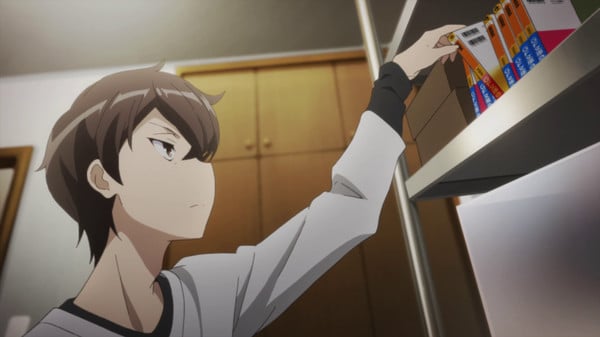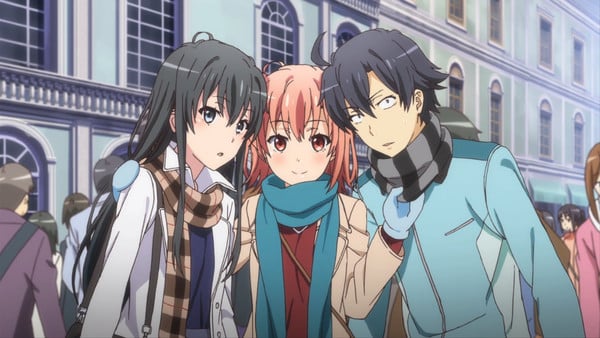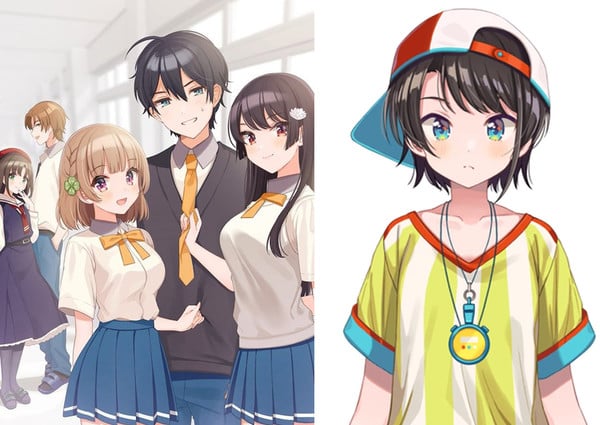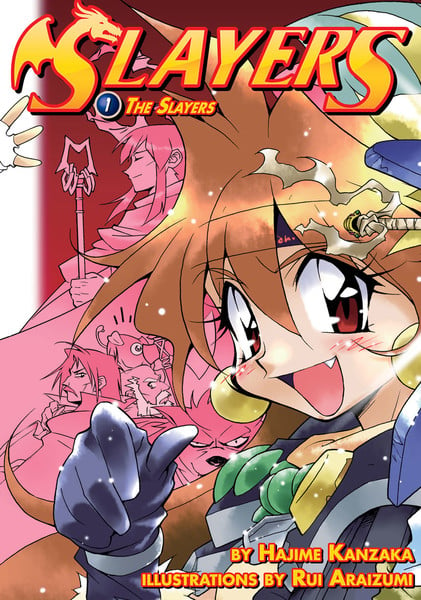2020: A Turning Point For Light Novels
by Kim Morrissy,2020 was... a tumultuous year, to put it mildly. The effects of the coronavirus pandemic reached every single person on this planet. In this year of big upheavals, as various industries scramble to adapt to lifestyles that have fundamentally changed, how has the light novel industry fared?

Broadly speaking, the coronavirus has had a mixed effect on the publishing industry. According to research on the Japanese reading market by Cross Marketing, almost 20% of people say they have been reading more this year. E-book sales are up, especially among young people. On the other hand, physical book sales are in a shakier position. Bookstores in city centers say they're struggling, while stores in suburbs and rural areas tended to do better this year.
Light novels are in a more precarious spot than traditional book publishing, though, because light novels are more than just books. The publishers invest in mixed media projects such as anime, and this was not a good year for the anime industry. As anime industry insiders have pointed out, broadcast and production delays also affect marketing and the creation of merchandise. With all the moving parts of the anime industry being compromised like this, it's no wonder that the growth of the industry has slowed to an 11-year low.
Looking back on the anime adapted from light novels this year, most of the successful titles were sequels to pre-existing properties, such as Re:ZERO -Starting Life in Another World-, Sword Art Online, Is It Wrong to Try to Pick Up Girls in a Dungeon?, and The Irregular at Magic High School. A notable exception to this was My Next Life as a Villainess: All Routes Lead to Doom!, but for the most part, new light novel anime failed to make much buzz this year. One of the more hotly anticipated titles, 86, was originally scheduled for 2020 and got delayed to April next year.

Even without the effects of the pandemic, however, 2020 would have been considered a turning point for light novels anyway. A sizable number of popular series came to an end this year. If we restrict the list to just titles that got an anime in the past, then the number reaches 12:
- Date A Live
- Gonna be the Twin-Tail!!
- Konosuba
- A Sister's All You Need.
- My Sister, My Writer
- High School Prodigies Have It Easy Even in Another World!
- Strike the Blood
- The Devil Is a Part-Timer!
- The Irregular at Magic High School
- Fortune Quest
- Do You Love Your Mom and Her Two-Hit Multi-Target Attacks?
- Rail Wars!
We haven't experienced the end of so many popular titles all at once since 2013, when 13 series with an anime concluded. What makes this list even more striking is the prominence of those titles in the light novel landscape. This year saw the conclusion of the long-running bestseller The Devil Is a Part-Timer! and the prestige title Fortune Quest, a fantasy series that started all the way back in 1989. My Youth Romantic Comedy Is Wrong, As I Expected, which defined light novel romcoms for a decade, technically ended late last year, but its third anime season adapted the conclusion of the story earlier this year. There's a feeling that the series has definitively wrapped up now.

I should note that some of those popular titles are still continuing in some form. Date A Live is getting a fourth season. It also still has its spinoff series, Date A Bullet, which got two anime films this year. The Irregular at Magic High School promptly announced two sequels, and the spinoff manga about Miyuki is also getting an anime slated for next year.
Still, there's no denying that this year was one of transition for light novels, as publishers scramble to find the next big hits and the established authors try to figure out where to take their long-running series next. The most prominent example of the latter is with Re:Zero: As of volume 25, which came out in December, the light novel release has officially caught up with the web novel. The series in general is transitioning into a broader mixed-media franchise with the release of a smartphone game and a console game, both of which the author has been supervising. Even though the author says he's got a roadmap for the web novel planned out, there's an air of uncertainty about where exactly the series will head next.
Other popular series started new major story arcs this year: Classroom of the Elite started its "2nd Year Arc" in January as a separate light novel series, while Rascal Does Not Dream of Bunny Girl Senpai started a university arc. A Sister's All You Need. might have ended this year, but the author has immediately started a new yuri comedy series, jumping onto the trend that I mentioned last year.

From the perspective of publishers, it has to be difficult to figure out what will be the next cutting-edge trend. I can't begin to guess at what the stories of the future will look like, but what I do want to highlight is the diversification of marketing and the media mix strategy. Light novel publishers have increasingly been investing in smartphone games; Fantasia Bunko's Fantasia Re: Build game launched earlier in December and features crossovers of a bunch of popular Fantasia Bunko novels. The big worry, of course, is the saturation of the anime mobile gacha game market, but on the other hand, text-heavy games are a natural fit for light novel authors. Fujino Ōmori has been using the DanMachi game for years to provide important worldbuilding and supplementary story details.
It says something about the prominence of Virtual YouTubers in 2020's otaku media landscape that I can't even write an article about light novels without mentioning the impact they had. Among light novel publishers, MF Bunko J has been pretty on-the-pulse when it comes to this new trend. Last year, they published a light novel about the popular Vtubers at the time. Since then, they've consistently reached out to VTubers to promote their books. This year, they got hololive's Shirakami Fubuki and Natsuiro Matsuri to promote Tantei wa Mō, Shindeiru. (The Detective Is Already Dead) and Minato Aqua to promote Classroom of the Elite.
The success of Osananajimi ga Zettai ni Makenai Love Come (A Romantic Comedy Where the Childhood Friend Absolutely Will Not Lose), a series which recently announced that is getting a TV anime, can also be partly attributed to the rise of VTubers. Series illustrator Ui Shigure debuted as a VTuber around the time the first volume of the light novel got published in mid-2019. Shigure, who currently has over 360,000 subscribers, would draw the characters of the light novel in her streams. Even the author personally attributes some of the buzz the series generated to Shigure's online activities.

Will we see a rise in VTuber-themed light novels? There are already some light novels which feature VTubing as a theme, like the humorously titled Imōto no Sukina Vtuber ga Jitsu wa Ore da Nante Ienai (I Can't Tell My Little Sister That The VTuber She Loves is Actually Me), but personally I don't think it will be a huge part of light novel storytelling, in a similar way that idol-themed light novels aren't really that big. The appeal of VTubers is in the live interactions, and you just can't capture that in a book. Nevertheless, I do expect to see more cross-pollination between VTubers and light novel promotions in the future.
Even as the light novel scene embraces the tech trends of the future, going forward also means looking back to the past. Light novels are old enough now to warrant this kind of nostalgia. A number of older light novel titles got some second wind this year, most notably The Melancholy of Haruhi Suzumiya, which came back from its nine-year-hiatus. I wrote a separate analysis of this series if you want to know more about its appeal, but in any case the newly published volume 12 sold like hotcakes, necessitating a reprint within two days. Other notable milestones include the Slayers series celebrating its 30th anniversary and NisiOisin's Shin Honkaku Mahō Shōjo Risuka series finally getting a conclusion after being on hiatus for 13 years. Seeing these old classics come back in some form is a good time to reflect on just how much light novels have changed over the years.

Bottom line: This year was not catastrophic for light novels by any means, but it is a time of uncertainty and transition. 2020 has been a difficult year for a lot of people, and many of the challenges of this year will continue for the foreseeable future. Nevertheless, light novels will continue to push on and tell fun stories. I hope that they can bring a little bit of joy to your life in these times, as they have for me.
discuss this in the forum (23 posts) |